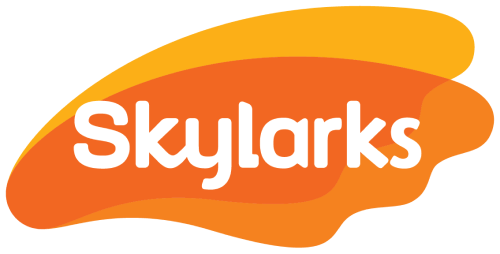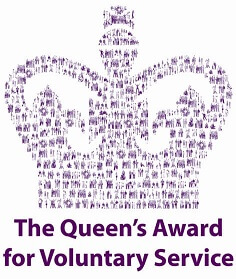Safeguarding Policy
SAFEGUARDING POLICY
DESIGNATED SAFEGUARDING LEAD (DSL):
FIONA MORGAN
07946 646033
info@skylarks.charity
DEPUTY DESIGNATED SAFEGUARDING LEADS (DSL):
MIA PATTERSON
07398 476557
mia@skylarks.charity
BARBARA BECZKO
barbara@skylarks.charity
SARAH WHYTE
sarah@skylarks.charity
WE RECOGNISE:
We recognise that the welfare of children and young people is paramount and that they
have equal rights of protection. We have a duty of care when they are in our charge and
will do everything we can to provide a safe and caring environment whilst they attend our
activities.
WE WILL:
- treat all children and young people with respect and celebrate their achievements
- carefully recruit and select all adults whether paid or unpaid
- respond to concerns and allegations appropriately
- adopt the recommendations of the SAFEchild child protection toolkit.
WHEN THERE ARE CONCERNS:
When there are concerns about the welfare of any child/young person all adults in
our organisation are expected to share those concerns with the Designated Safeguarding Lead.
They are responsible for:
- monitoring and recording concerns
- making referrals to children’s social care services without delay
- liaison with other agencies
- arranging training for all staff
STAFF ALLEGATIONS:
Concerns about the behaviour of adult/s in the organisation will be referred without delay
to the Lead Child Protection Person who will contact Children’s Social Care Services or
the police in an emergency.
In the rare situations that the concerns are about the Designated Safeguarding Lead, it is
important to refer to the deputy person. This may not be appropriate, in which case any
member may personally refer direct to Children’s Social Care Services.
WE WILL REVIEW THIS POLICY ANNUALLY:
DATE OF LAST REVIEW:
February 2025
DATE OF NEXT REVIEW:
February 2026
Safeguarding (including Child Protection) Policy - Skylarks
1. Introduction
Everyone in the community has a responsibility to protect children. This policy sets out for staff
and volunteers the procedure to follow if they consider that a child may be being abused or
neglected. For the purposes of this policy, a child may be aged from a baby up to 18 years old.
The organisation considers it imperative that suspicions of abuse and neglect are reported to the
appropriate agencies. Children with disabilities are 50% more likely to be victims of abuse than
other peer groups (Dr Barnardo’s Statistics).
2. What is abuse or neglect?
For the purposes of this policy, and in line with the guidelines produced by the Borough of
Richmond-upon-Thames, the organisation considers that abuse and or neglect may occur when
someone responsible for a child inflicts harm, or fails to act to prevent harm. This may take place
within a family, institution or community setting, such as the play session. It is important to
remember that the person who abuses is usually known to the child, but can also be a stranger.
In considering whether to report a concern of abuse or neglect, you should consider the following
categories of ill-treatment:
Physical Abuse
Any physical harm inflicted upon a child, and can involve hitting, shaking and burning. Note
that Fabricated or Induced Illness (also known as Munchhausen syndrome by proxy) is also considered to be a form of physical abuse. This occurs when the parent or carer fabricates the symptoms of a disease in order to gain medical attention and treatment for a child.
Emotional Abuse
The emotional ill-treatment of a child, which may have a negative impact on their emotional
development. It can involve conveying to children that they are worthless or unloved.
Sexual Abuse
This involves forcing or enticing a child to take part in sexual activities, whether or not the
child is aware of what is happening. The activities may involve physical contact, including
penetrative or non-penetrative acts. It may also involve encouraging children to behave in
sexually inappropriate ways.
Neglect
This is the failure to meet a child’s basic physical and/or psychological needs and is likely to
have a serious negative effect on the child’s health and development. This may include,
failure to provide food, failure to ensure access to appropriate medical care or treatment or
neglect of the child’s basic emotional needs
Radicalisation
Prevent Duty June 2015 calls for the identification of children who may be vulnerable to
radicalisation, to prevent children from being drawn into terrorism.
Slavery and Human Trafficking
Modern slavery encompasses slavery, servitude, human trafficking and forced labour. We
have a zero tolerance approach to any form of modern slavery. We are committed to
acting ethically and with integrity and transparency in all dealings and to putting effective
systems and controls in place to safeguard against any form of modern slavery taking
place
Recruitment: We conduct eligibility to work in the UK checks when recruiting new staff, in
order to help safeguard against human trafficking or individuals being forced to work
against their will.
Whistleblowing: We aim to ensure that all employees and volunteers know that they can
raise concerns about how colleagues are being treated, or practices within our charity,
without fear of reprisals.
3. Who are children at risk from?
Children and young people can be at risk from people other than their parents. The organisation
will always take up police checks and references prior to employment, but acknowledges that a
member of staff or volunteer may be capable of child abuse. All such suspicions are taken very
seriously and will ensure thorough and appropriate reporting and investigation is carried out.
4. How to report concerns.
Any suspicions or concerns that you may have should, in the first instance, be reported to the
Designated Safeguarding Lead, Fiona Morgan, or the Deputy Designated Safeguarding Leads, Mia Patterson or Barbara Beczko, who have been trained to an appropriate level. You will be requested to fill in and sign a
concern sheet. The Designated Safeguarding Lead or the one of the deputies should then report all cases to
the appropriate borough authorities.
If preferred, or in the case of an emergency, you or any individual can report their concerns to
the local authority in which the child lives. as follows:
Richmond and Kingston:
6.2.1. Telephone: Contact the Single Point of Access (SPA) on 020 8547 5008 6.2.2. Use an online form
6.2.3. In Person: Services for Families and Children Department of Social Services at: 42, York Street, Twickenham, TW1 3BW
Their Office hours are 8am to 5.15pm, Monday to Thursday and 8am to 5pm Friday
Where there is uncertainty about the appropriateness of raising a safeguarding alert, advice can be sought from Children’s Social Services on the contact details above.
π
6.3. Out of hours enquiries:
For emergency queries outside of office hours you can call London Borough of Richmond Upon Thames Emergency Duty Team:
Duty Social Worker 020 8770 5000
6.3.1. The service is available from 5pm to 8am on Monday to Friday and 24 hours on weekends and Bank Holidays. Details of other Local Authority Children’s safeguarding bodies can be found here:
Hounslow Child Safeguarding Team
Telephone: 020 8583 6600 option 2 - Monday to Friday from 9am to 5pm. Out of hours telephone: 020 8583 2222.
Email: childrensocialcare@hounslow.gov.uk
Kingston Child Safeguarding Team
Telephone 020 8547 5005 - Monday to Friday from 9am to 5pm
Out of hours telephone: 020 8770 5000.
Wandsworth Child Safeguarding Team
Telephone: 020 8871 6622 - Monday to Friday from 9am to 5pm
Out of hours telephone: 020 8871 6000
For all other local authorities please refer to the authority in questions website. If unsure where the child may reside, please contact Richmond Council or call 999 in an emergency.
5. What Happens Next?
An enquiry will be conducted by the social services department, the main aim of which is to
establish whether the child is safe, how serious any concerns are and what kind of support the
family might need.
The Department will want to find out as much as possible about the situation.
Discussions will be held with the parents/carers and child, if they are old enough. Also other
professionals involved in the care or development of the child may be approached, e.g. teachers,
health visitors. The Police Child Protection team may also be involved.
In most cases, the child will be able to remain at home with the family. In the most serious cases,
where there is clear evidence that a child is in immediate danger, and the parents are unable or
unwilling to co-operate, the Social Services Department would apply for a court order to
temporarily remove an abusive parent or to place the child in a safer environment.
You may choose to remain anonymous when reporting a suspicion of abuse.
Additional Safeguarding Procedures for online events at Skylarks
Most of our content consists of pre-recorded videos which can be watched from the comfort and safety of your own home, in your own time.
All live events, for adults or children, will be subject to updated safeguarding procedures.:
ONLINE SAFETY PROCEDURES
Some of our activities are happening live by Zoom currently. All our live events, for adults or children, will be subject to updated safeguarding regulations, including:
For all live events we are using Zoom Pro, the professional version of Zoom, whose features have higher levels of security and more control available than the free version used by individuals.
Parents booked in to any of our live events will be sent a Zoom code in advance. We will not publicise the passwords except to those who have booked the event in advance.
Parents must be present for all live events with their children and must ensure their suitability and safety.
Further safeguarding procedures will be explained to all parents who book on to any live events with Skylarks. Parents need to tick to say they agree with these when they book an event.
Instructions for parents before starting live online sessions:
You must be present in the room with your child during all Skylarks live online sessions. You are responsible for their safety at home.
Your child/ren must be fully dressed during all Skylarks live online sessions. This includes the children taking part and any other children at home who may walk into the room.
You must not record, photograph or video any Skylarks live online sessions
You must not share any Zoom passwords.
If you are concerned about any other child or parent who is part of the group, please contact a member of Skylarks staff.


